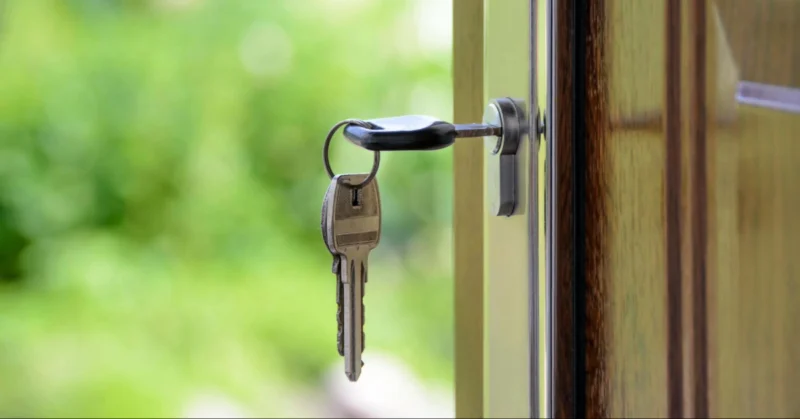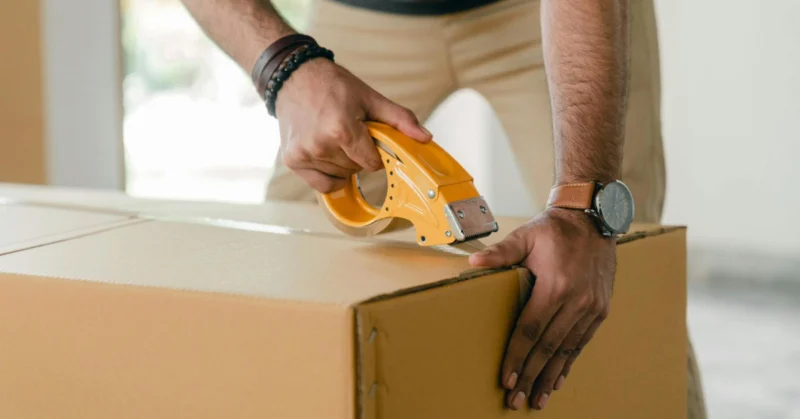What if you could earn from your home, even while you’re still paying off its mortgage? Drinking your morning coffee, you might wonder: Can I rent my home if I have a mortgage? The good news is that in the UAE, you often can. But there are specific checks with your bank, lease registration rules, insurance tweaks, and paperwork you need to know.
This article will show you step-by-step how to do it right. You’ll learn what to look for in your bank contract, how to get the proper permissions, protect yourself with insurance, meet local laws, register the lease and more.
- Mortgage agreement terms and bank consent
- Financial and insurance considerations
- Getting the property ready
- Tenant screening
- Preparing lease essentials
- Regulatory and lease registration: what to do by emirate
- Special situations
- Key takeaways
- FAQs
Mortgage agreement terms and bank consent
First, open your mortgage agreement and read carefully.
- Look for clauses about leasing. Some banks require written approval or a No Objection Certificate (NOC) before you rent.
- If you rent without bank consent where it’s necessary, you can breach the contract. This may lead to penalties, higher interest rates, or even the bank demanding early repayment.
- Check whether the mortgage is “owner-occupier” or “investment/landlord”. That classification affects interest rates, documentation, and whether renting is allowed.
You need documentation to prove you own the property. You may also need to show the bank that renting fits within your contract terms. If you don’t, you risk breaking the contract or invalidating parts of the insurance.

Financial and insurance considerations
Renting out your home when mortgaged affects more than just your income. Be sure you have thought through all costs and projections.
You will need to budget for:
- Mortgage repayments (which you must keep paying even during vacancies).
- Maintenance, regular repairs, service charges.
- Utilities (DEWA, etc.)
- A buffer for unpaid rent, tenant turnover, or unexpected repairs.
In most cases, the UAE does not have a federal rental income tax for individuals, but check local/emirate‑level fees and housing fees, which may apply to rental properties.
Tell your insurer when you switch from owner‑occupied to rental use. Many home insurance policies don’t cover tenant‑related damages unless updated. Some banks require specific insurance when property is leased. You may need landlord liability cover or different protection.
Getting the property ready
Get your home in good condition before tenants move in. Fix safety hazards, repair significant wear and tear, and clean thoroughly. You should also take photos of every room and feature.
Additionally, document the condition with date-stamped images. This helps if there are disputes over deposits later.
Make sure all safety and utility connections are working and that items like plumbing, electrical fittings, doors, and windows are safe and functional.
Tenant screening
Screening your tenants carefully matters a lot. It protects your property and finances and ensures the lease goes smoothly. Here’s what you should do, and what’s normal in the UAE.
Verify identity
Always ask for Emirates ID, passport or visa copies to verify identity and legal status. Make sure these are valid. This is essential, especially in places like Dubai or Abu Dhabi, where authorities may require them for lease registration.
Check financial stability
Request proof of income, including salary slips, bank statements, or an employment contract. You want to be sure they can pay rent reliably. Some landlords use a rule of thumb, such as income must be at least 3 times the monthly rent.
Rental history
Rental history and references are also powerful indicators. Talk to their previous landlord(s). Ask whether rent was paid on time, whether they kept the place in good condition, and whether they gave proper notice when leaving. If you find things like past evictions, frequent moves, or complaints, that’s a red flag.
Employment and other considerations
Verify employment with documents and contact the employer. It also helps to look into their credit history or background. You can request credit reports via Al Etihad Credit Bureau or use private verification services.
Keep your screening process fair and transparent. Use the same criteria for all applicants. Don’t discriminate based on nationality, gender, religion or anything unrelated to ability to pay, conduct, or legal status. Also, ask for consent before collecting sensitive information. You want a process you can defend legally if needed.

Preparing lease essentials
You want a lease that protects you and satisfies tenants. Accordingly, draft a clear written lease which includes rent amount, deposit, duration, responsibilities for repairs, eviction or notice procedures.
Then, identify both parties clearly in the document. If needed, obtain the bank’s NOC. Without it (where required), your lease may not comply with your mortgage contract.
All lease agreements must comply with tenancy laws in your emirate. Once you have signed the lease, register it with all required documents.
If you manage from abroad or manage more than one property, consider hiring a property manager. They can help with tenant screening, maintenance, and compliance with laws.
Regulatory and lease registration: what to do by emirate
You must register your tenancy agreement with the local authority in your emirate. This is not optional, and an unregistered lease carries legal risk.
Dubai – Ejari
- You’ll need the signed lease contract, a copy of your title deed, landlord and tenant IDs, and a DEWA premise number or recent utility bill.
- Registration can be done online through the Dubai REST app, via the Ejari system, or at typing centres.
- Ejari registration comes with a small fee, depending on how you register.
Abu Dhabi – Tawtheeq
- You’ll need the signed lease contract, the landlord’s passport, and the landlord and tenant IDs.
- Tawtheeq registration is done via the Smart Hub online platform or at Abu Dhabi Municipality centres.
- Expect fees of about AED 1,000 for property registration and small additional charges for new lease issuance or renewals.
Sharjah and other emirates
- In Sharjah, you’ll need the tenancy contract signed by both parties, the landlord’s title deed, the tenant’s and landlord’s Emirates ID or passport, and a SEWA utility bill or details.
- Registration/attestation can be done through the Sharjah Municipality or via the Digital Sharjah “Move‑In” service online.
- Fees are typically a percentage of annual rent (e.g., 4%) or a fixed minimum. In many cases, the minimum fee is around AED 500.
Special situations
Golden Visa
You can rent out a mortgaged property even if you plan to use it for a Golden Visa, but there are conditions. The property value must be AED 2 million or more, even if mortgaged. You’ll need an NOC from the bank showing how much you’ve paid and what remains. Title deeds or valuation certificates must support your claim.
Shared ownership
If you share ownership, your share must be clear. For example, if two people own equally, each might need their share to meet value thresholds in certain visa or bank rules. Authorities often reject cases where ownership shares are vague.
Non-resident owners
Being a non‑resident adds extra checks. Banks often demand more documentation (proof of income, valid IDs, and power of attorney). You may need to show clear ownership and that your mortgage allows letting out. Also, managing registration, maintenance, and compliance from abroad is harder, so plan for those challenges.
Key takeaways
When you consider renting your home while it’s mortgaged, the most important first step is to check your mortgage agreement and get bank consent where needed. You must look for clauses about leasing and find out if an NOC is required. If your contract is labelled “owner‑occupier” rather than “investment”, the rules for renting out may be much stricter. Without the right permissions, you risk penalties, higher interest rates, or even the bank demanding full repayment.
You must also take care of registration and insurance, prepare the property, and screen tenants carefully. Register the lease with your emirate’s authority (Ejari in Dubai, Tawtheeq in Abu Dhabi, etc.) using all required documents like title deeds, IDs and utility/DEWA proof.
Additionally, update your insurance policy when you change from living in the home to renting it out, and budget for all extra costs (maintenance, utilities, vacancies). Finally, pick reliable tenants by checking their identity, financial stability, and rental history so you protect your property, stay compliant, and ensure steady rental income.
FAQs
Yes, especially if your mortgage agreement requires it. Renting without an NOC may breach your contract.
Possibly, as banks may reassess your financial profile, potentially altering terms or imposing additional fees.
Yes, you need. All tenancy contracts must be registered with the local authority, such as Ejari in Dubai.
No, it is not. The UAE does not impose personal income tax on rental income for individuals.
You risk penalties, breach of contract, insurance issues, and potential legal complications.